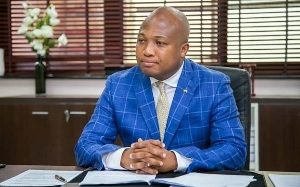Accra, Aug 1, GNA - Unionized workers of Vodafone Ghana has vehemently rejected the recently announced compulsory redundancy programme, targeted at 950 workers.
Mr Emmanuel Dakwa, Chairman of the local Communication Workers Union (CWU) of Vodafone, told the GNA that the manner in which management was rolling out the redundancy programme was "autocratic". "It was wrong for management to have held a press conference without recourse to internal arrangement with union on how to roll out that redundancy programme," he said.
He said union met with management under a binding Standing Joint Negotiations Committee, chaired by the current Chief Finance Officer (CFO), Mr Randell Hato, acting as Chief Executive Officer, to discuss the comprehensive restructuring programme, which included the voluntary redundancy programme.
Mr Dakwa said at that meeting, it was mutually agreed that when management finished drafting the programme, it would submit it to the union executive for members' perusal before implementation.
"It is very sad that whiles we are going round the country educating union members about voluntary redundancy, management decided to hold a press conference in our absence and announced a compulsory redundancy programme, of which we had no prior notice," he said. He said union members had therefore been asked to reject the letters given to them to virtually compel them to go on redundancy since the mutual procedure agreed upon had not been followed.
"The way management is bullying workers and laying off people at will is autocratic and if they continue this way we will rise against them and everything they are doing will backfire in the faces," he warned.
Even though management claimed to have duly informed the National Labour Commission (NLC) about the compulsory redundancy programme, Mr Dakwa said the normal procedure was for the NLC to have formerly informed the national union about it and invited a written response from union, but union had not received any such formal correspondence from the NLC.
He noted, for instance, that union requested that all workers with salary levels 12 to six, covered under the Collective Bargaining Agreement (CBA), should be exempted from the compulsory exit, but management had resorted to the use of threat, insults and other cunning means to cajole some workers out of employment.
"They for instance, tell people to opt for redundancy because of their age even though most of the people they are compelling to leave have not reached the legal retirement age of 60 years," he said. Mr Dakwa said union is even more surprised that their Ghanaian colleagues in management had allowed themselves to be cajoled by one man, the CFO, into rubbishing due process against the workers who had held the fort for all these years when previous foreign investors came and left.
Mr Isaac Abraham, Chief Manager, Corporate Communications of Vodafone, last Friday held a press conference and announced that 950 workers would be expected to exit Vodafone compulsorily between now and November 2009.
He announced that affected workers would be given similar packages like some 942 workers who exited voluntarily. If that compulsory redundancy move succeeds, 1,842 out of 4,000 workers would have been laid off since Vodafone took over the operations of Ghana Telecom (GT) last year.
Workers are not too enthused about the large-scale redundancy because, as some of them put it, they supported the Vodafone takeover of GT whole heartedly, not knowing that they were about to close some units and lay workers off in such huge chunks.
Currently, new local employees of Vodafone are being paid higher salaries than their counterparts already in service, and that, workers say, was one of the strategies to compel them to opt for the redundancy package instead of continuing to work for Vodafone. The redundancy package include three months salary for every year of service, plus a comprehensive transitional support programme comprising of counselling on life after Vodafone among other things. Mr Dakwa has hinted that when union and management go for the next CBA renegotiation in December, union would be asking for huge salary increase to match those of the new employees; but management seem to be working smart to lay off as many workers as possible in order to reduce the number of people whose salaries would be negotiated in December. 1 Aug 09
Business News of Saturday, 1 August 2009
Source: GNA
Vodafone workers reject compulsory redundancy programme

















